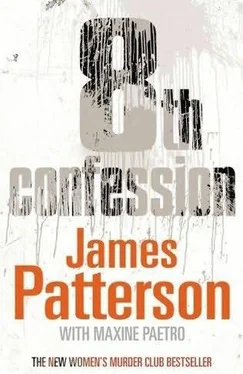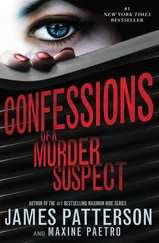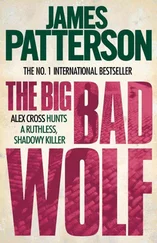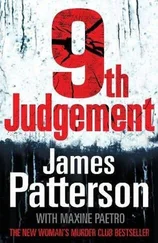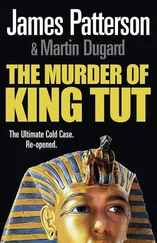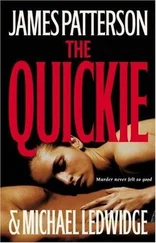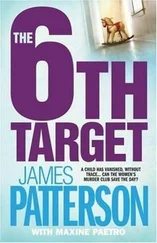I smiled, said, “Okay. After we take care of business, I’ll give her the exclusive.”
I was quiet after that.
As I turned the car onto Bryant Street, I thought about Bagman Jesus, a charming and handsome lowlife who’d sold crack to kids, turned girls into meth addicts, a man who had commissioned a mobile meth lab that had blown up, killing ten people, most of them ordinary citizens on their way to work.
I don’t condone street justice.
If we could nail Booker’s killer, we would. But maybe this time, law enforcement would bow to a different kind of law. Bagman Jesus, the street saint who wasn’t, had been taken out faster and smarter than we could have done it – and without giving him the possibility of parole.
It was indisputable that our city was better off now that he was gone.
“Whatcha thinking, Lindsay?” Conklin asked me.
I turned to look at him, saw that he, too, was feeling fine. I said, “I was thinking that in a funny way, this is a good day to be a cop.”
AS JOE PILOTED his nice black Mercedes S-Class, I relaxed in the seat beside him. It was great to look to my left and see his gorgeous face, his strong hands on the wheel. Every time he caught me looking at him, he turned to look at me.
We grinned at each other like high-school kids with a first crush. “Keep your eyes on the road, buster,” I said to him.
“I want to take that dress off you,” he said.
“I just put it on!”
“I remember,” he said, leering. “Now what was it you were telling me?”
“Yuki.”
“Right. Yuki’s going away for a few weeks.”
“She was going away for a few weeks, then Parisi called her into his office and said, ‘I’ve got a case for you, Ms. Castellano. I think there could be a promotion in it. And a raise.’ ”
Joe turned the wheel, and we swept into the drive leading to the Convent of the Sacred Heart in Pacific Heights, an insanely beautiful and kind of creepy old mansion where Joe’s friend the mayor was holding a big fund-raiser for inner-city children.
It was an A-list event, and Joe was high on that list because he was a government contractor, the former deputy director of Homeland Security, and a specialist in Middle Eastern affairs.
Valet parkers in Flying Dutchman outfits stepped out of the shadows, and spotlights out front transformed the school into an elegant nightspot. Guests wearing Prada-everything emerged from their expensive cars, and Joe got out of ours.
He handed the keys to a valet, then came around and opened the door for me. I took his arm.
“I want to hear the rest of the story,” he said.
We headed toward the arched stone entrance. I was conscious of being dressed up for a change: wearing high-heeled shoes, putting my hair up, zipping into a long, tight red dress, and it felt good knowing that if ever a gown was made for a five-foot-ten-inch blonde, I was wearing it. And if ever there was a good-looking man in a tuxedo, I was on his arm.
“Oh. So Parisi says to Yuki, ‘I’m giving you the Rodney Booker case. Congratulations.’ He handed her a bomb, Joe. Eight defendants, no witnesses, an unmatchable possible murder weapon, and an unsympathetic victim. She’s going to work on this for a year, and then she’s going to get killed in court.”
“Poor frickin’ Yuki.”
“One day she’s going to catch a break. Maybe. I hope.”
We stepped over the threshold into a cocktail party in high gear. Beautiful people were engaged in avid conversation, laughing, their voices echoing in the magnificent Reception Room with its high, coffered ceilings designed to look like the Vatican – sixteenth-century Italian High Renaissance.
A waiter came by with a tray of champagne flutes, and Joe and I each took one.
After a sip, Joe set his glass down on a nearby table, reached inside his pocket, and took out a black velvet box I’d seen many times before. He had presented it to me twice, and although I’d never fully accepted it, I’d kept it safe through fire and through moving to Joe’s, and every once in a while I’d opened the box, just to see where I stood in my own mind.
And now Joe was opening that black clamshell case again and holding it so that the five diamonds in the platinum setting twinkled like a crystal chandelier.
I looked up at him, thinking he didn’t need the trappings. I would love him in a spangled spandex bodysuit. I smiled.
“I have this sense of déjà vu,” he said.
My butterflies did cartwheels, but I stood still, holding the gaze of my blue-eyed hunka man.
“Do I have to go back to Queens and live with my mother? Or will you marry me, Lindsay? Will you be my wife?”
As people swirled around us, a band started to play a kind of corny but very sentimental big-band tune from the ’40s. It was utterly perfect.
I put down my glass and held out my hand.
“Is that a yes?” Joe said. “Or are you asking me to dance?”
“Both. It’s a definite double yes.”
Joe’s face buckled with emotion. He said, “I love you, Blondie.” He wiggled the ring onto my finger and kissed me. I felt the power of our kiss, the way it sealed this perfect moment and blessed our future together.
I put my arms around Joe’s neck, and he held me tight. As we swayed to Glenn Miller’s “Moonlight Serenade,” Joe’s voice was soft in my ear: “You’re not changing your mind. We’re getting married.”
“Yes, Joe, we will. I love you completely. I truly do.”
NORMA JOHNSON WAS resting in her maximum-security cell in the Central California Women’s Facility. The cell was eight by eight feet of beige-painted metal containing two narrow pallets, one bunk over the other, a sink, a stainless- steel toilet, and unless you counted the cell mate snoring overhead, that was all.
Her cell mate was Bernadette Radke, old enough to be her mother, a murderer like she was but nowhere near as smart or as cool. Bernie had killed her husband by running him down with a pickup truck, and then, as she was “bookin’ outta there,” she ran a red light and killed three more people. One of them was an eight-year-old kid.
Despite her body count, Bernadette was a lightweight.
She had done no planning, had no finesse. She was just a borderline mentally challenged rage freak, but that was fine with Pet Girl because Bernie was her virtual slave.
Everyone was.
Norma Johnson wasn’t Pet Girl anymore.
She had no duties, no responsibilities, and every guard in the place, every trustee, had to take care of her. Her food was prepared. Her blue uniform was washed. Her sheets were folded. Her mail was delivered, and guess what? There was a lot of mail. From fans. From magazines. From Hollywood.
She was a celebrity now.
Everyone wanted to know her, to talk to her. They were both afraid of and in awe of her.
And she felt like the homecoming queen in this place. For the first time in her life, she thought she was where she belonged.
Norma lay on her pallet, looked up at the underside of the bunk above her, projected her whole life onto that blank screen. She turned over the many moments that had made her who she was, examined the greatest ones, and told her own story to herself.
She especially reviewed the one story she’d never told anyone: about the time her daddy had brought her to his house on Nob Hill when no one was there. He’d shown her the snakes he kept in his private room, shown her how he handled them, and told her how they could be used to kill.
She remembered how much she loved him then. How she worshipped him. But there was something else, too. The question. Why couldn’t he fully acknowledge her?
Читать дальше
